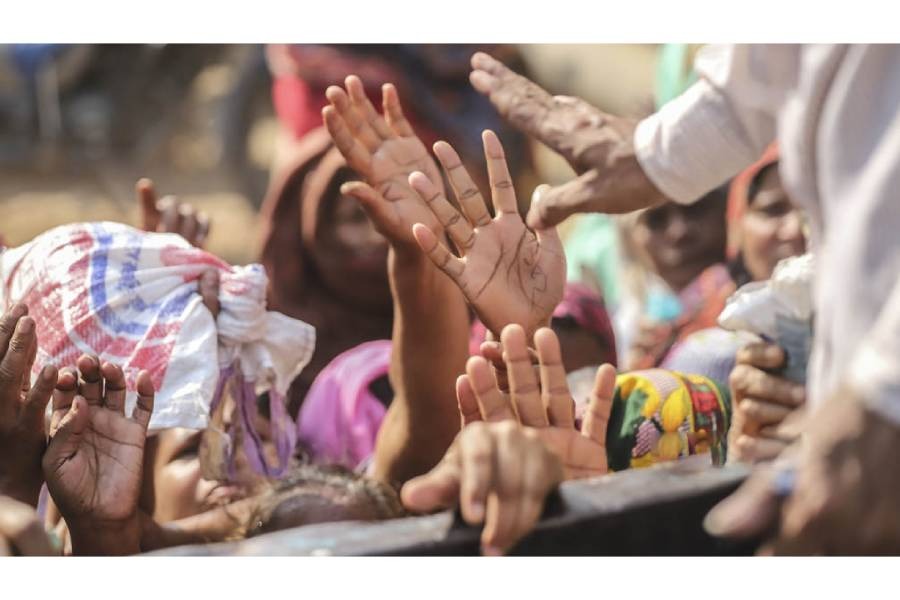
Published :
Updated :

The World Bank (WB) made a forecast in April last that more 3.0 million people would join the ranks of the extreme poor by the end of this year. Attributing this development to the economic slowdown following August 2024 political change, the global lender added that the development would contribute to the rise in the overall rate of extreme poverty from 7.7 per cent in 2023 to 9.3 per cent by the end of this year.
As defined by the WB, individuals who cannot meet their basic needs and live on less than USD2.15 dollar (as of 2023) a day are the extreme poor. And, as such persons cannot meet their basic needs, they often go hungry and suffer from malnutrition. Actually, this is a broad-brush measure to qualify and quantify extreme poverty. But in the real world, extreme poverty is a very complex human condition and it varies depending on the overall social and economic condition of society where a section of its population is experiencing abject poverty. From the perspective of donor-funded poverty research, the efforts to address poverty, which is but a symptom of a much deeper social malaise of continuous transfer of social wealth from the people belonging to the economically weaker and underprivileged segment of society to the powerful and the rich directly under state political patronage, is more palliative than curative. Notably, the political class running the state acts as the handmaiden of this continuous pauperisation of the weaker segment of society. The phenomenon was never more glaring than during the previous regime. So, the transfer of social wealth to the super-rich at an unprecedented scale that was taking place during that period should have at least come to a temporary halt through the political change of August 2024. But from the findings of the WB, it appears that the political changeover of August 2024 has rather worsened than improved the country's poverty situation. How is one to explain this apparent dichotomy? Clearly, the rise in extreme poverty that WB reported was the continuation of the worsening poverty rate that remained both unreported and under-reported during the previous regime.
Small wonder that the study findings of a local private research body, Power and Participation Research Centre (PPRC), as disclosed recently, show how the rising poverty level is affecting both urban and rural households of the country. The said study found that 80 per cent of the households in Bangladesh cannot meet family expenses with their monthly incomes. So, they have to borrow money from relatives or other sources to make ends meet. As a result, they get into debt, which is the beginning of the process of sliding deeper into poverty. The PPRC study found that the bottom 40 per cent of the households have an average monthly income of Tk 14,881 or about Tk 15,000. But this amount of money falls short of their average monthly expenditures amounting to Tk 17,387, which is close to Tk 17,400. Clearly, the borrowings render these families even poorer as they have no additional incomes to repay the debts accruing every month. Evidently, these families are progressively running into a vicious circle of debt that they cannot extricate themselves from. Soon they will fall into dire poverty, categorised as 'extreme poor' by the WB.
The middle 40 per cent families, as it came out from the PPRC's study, have an average monthly income of Tk 28,818, or in round figure, Tk 28,800. The average monthly expenditures of these families, on the other hand, are Tk 29,727, or around Tk.29,700. So, this group somehow manages to scrape through. Since the interim government is focusing mainly on addressing the issues of macro economy like economic growth, inflation, interest rates, balance of payments etc., the micro-economic ones like worsening poverty is getting lesser attention.
But for those living through penury, the matter is urgent and cannot wait. The government must act to help at least the bottom 40 per cent households so they may not sink into extreme poverty.
sfalim.ds@gmail.com


 For all latest news, follow The Financial Express Google News channel.
For all latest news, follow The Financial Express Google News channel.